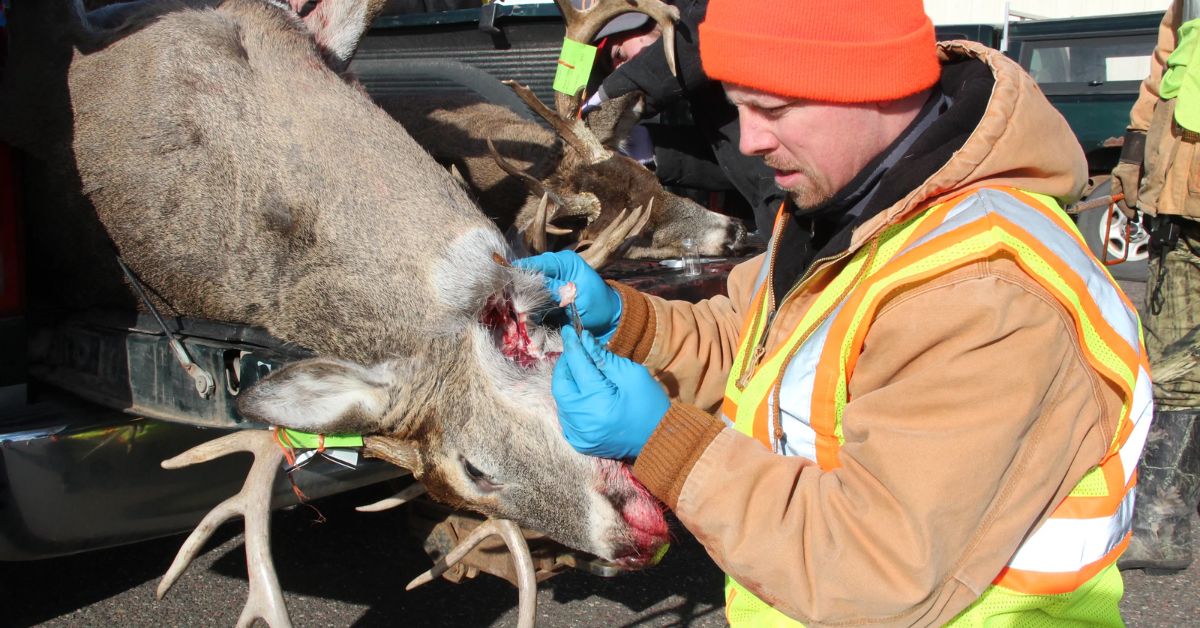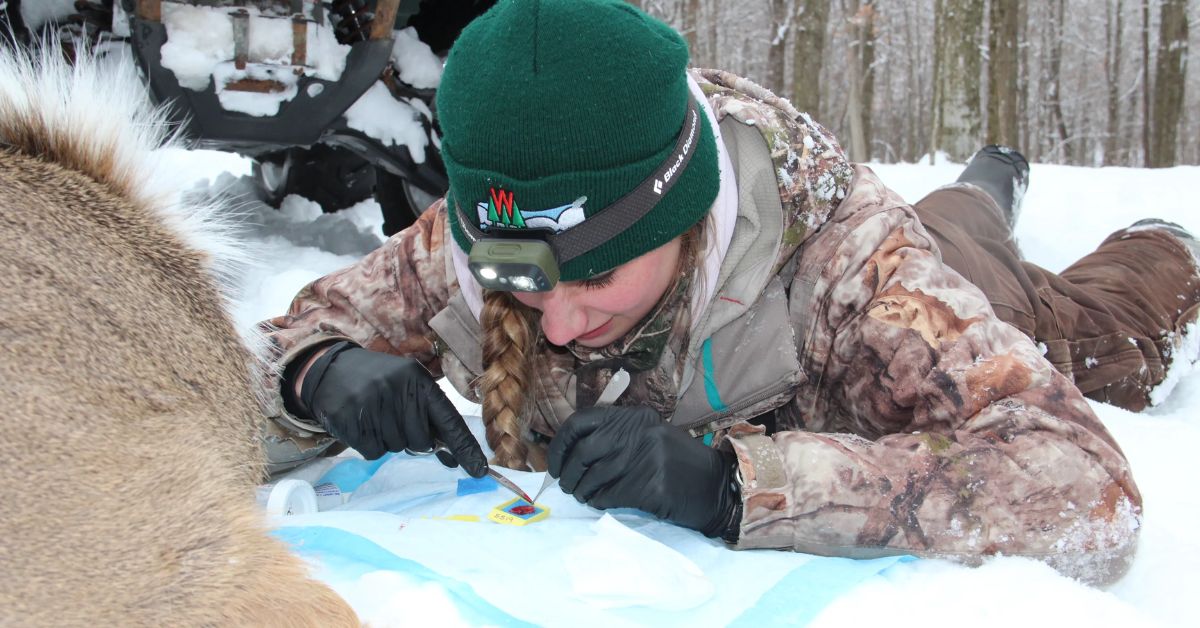On Wednesday, the Department of Natural Resources said that a wild deer in Langlade County had been found to have the chronic wasting disease. The deer was a 1-year-old buck caught by a hunter in Wolf River.
It comes after similar reports in Buffalo and Waupaca counties and is the most current in a string of recent initial CWD findings in wild deer in Wisconsin.
Deer, moose, elk, and other cervids are susceptible to a deadly, infectious nerve system disease called chronic wasting. It is a member of the prion disease or transmissible spongiform encephalopathies (TSE) family of illnesses.

Although the disease has not been connected to any human illnesses, the Centers for Condition Control and Wisconsin Department of Health Services advise against eating meat from deer that have the disease.
In 1999, the DNR started keeping an eye on the state’s natural population of white-tailed deer for CWD. The first positives were discovered in captive deer at a farm in Portage County and in wild deer that were slaughtered in late 2001 close to Mount Horeb.
Since then, the disease has affected captive and wild herds in the state. The DNR imposes three-year bans on baiting and feeding in counties where CWD has been found and two-year bans in neighboring counties within 10 miles of a CWD discovery, per state law.
A 3-year baiting and feeding prohibition in Langlade County and a 2-year ban in Menominee County will be renewed due to the recent discovery of CWD in those counties.
The Menominee Tribal Government has its baiting restriction inside the external boundaries of the Reservation due to the deer being shot near the Menominee Reservation.
According to the DNR, baiting or feeding deer induces artificially large herds around a standard food supply where ill deer might spread CWD through direct contact with healthy deer or by secreting infectious prions in their saliva, blood, feces, and urine.
The Langlade County finding will be discussed in a meeting Wednesday at 6:30 p.m. at White Lake High School in White Lake. During the meeting, DNR personnel will discuss CWD in Wisconsin, regional CWD testing initiatives, and potential disease surveillance solutions.
Bird count: From February 17 to 20, the world will participate in the 26th Great Backyard Bird Count. The National Audubon Society and the Cornell Lab of Ornithology are in charge of organizing the event.
People are encouraged to spend time in their favorite locations viewing, counting, and reporting as many birds as they can discover.

The organizations claim that the observations give scientists a better understanding of the world’s bird populations before one of their yearly migrations and help construct a picture of how birds are faring in the face of habitat loss, climate change, and others.
Want some related articles? We have covered some top news. You can check the…
- Maryland Congressman Jamie Raskin Announces Cancer Diagnosis
- Women’s heart health calls for increased investment and action
For at least 15 minutes, each person or group counts birds and logs the species they can identify. You can do this at home, in a park, or while driving or commuting. Last year, over 7,000 species from 192 different countries were reported by an estimated 385,000 participants.
To participate or learn more, go to the Great Backyard Bird Count website at birdcount.org. The groups will host an educational webcast on February 15 at noon.
Input from Wolf session captured: The public listening session held last Tuesday on the state’s draft wolf management plan is accessible as a recording. An explanation of the proposed method by Department of Natural Resources officials was followed by public comments to open the session. On the DNR’s YouTube channel, it is archived.
General feedback on the draft wolf plan is open online through February 28. U.S. Mail should be sent to Wolf Management Plan Comments, 101 S. Webster Street, PO Box 7921, Madison, WI 53707-7921, if you have any comments. Comments can also be sent online.

